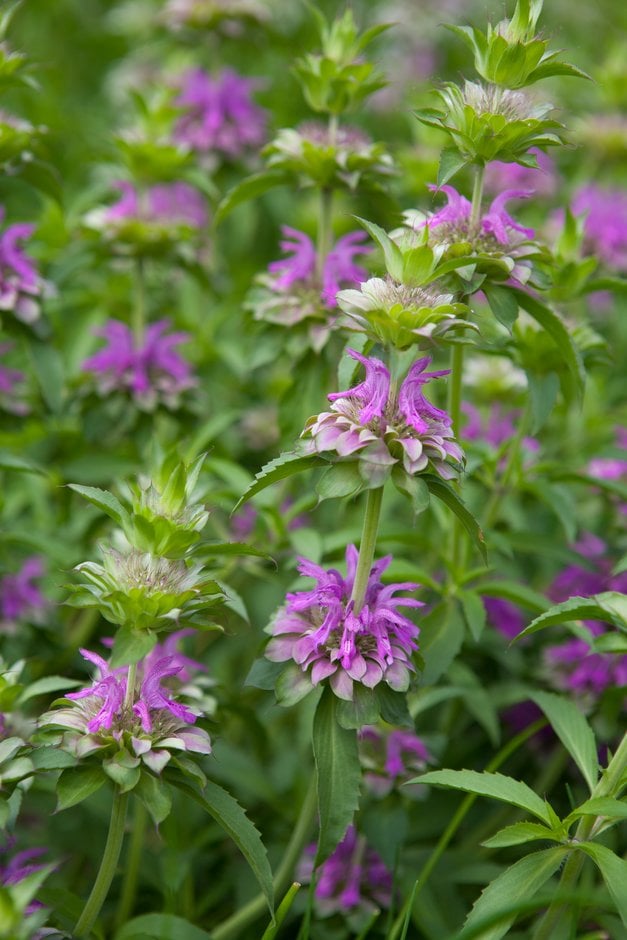Monarda citriodora
bergamot
A short-lived perennial often grown as an annual or biennial to 60cm tall with narrow, toothed, lance-shaped leaves that smell of lemon when crushed. Scented, tubular, two-lipped white, pink and purple flowers over purplish bracts are borne in tiered, globular clusters around the stem; each flower stem usually carries between two and six flower clusters

Buy this plant
Size
Ultimate height
0.5–1 metresTime to ultimate height
2–5 yearsUltimate spread
0.1–0.5 metresGrowing conditions
Moisture
Moist but well–drainedpH
Acid, Alkaline, NeutralColour & scent
| Stem | Flower | Foliage | Fruit | |
| Spring | Green | |||
|---|---|---|---|---|
| Summer | Pink Purple White | Green | ||
| Autumn | Green | |||
| Winter |
Position
- Full sun
- Partial shade
Aspect
West–facing or East–facing or South–facing
Exposure
Exposed or Sheltered Hardiness
H5Botanical details
- Family
- Lamiaceae
- Native to GB / Ireland
- No
- Foliage
- Deciduous
- Habit
- Bushy
- Genus
Monarda can be annuals or clump-forming herbaceous perennials with aromatic, ovate leaves and terminal whorls of 2-lipped, tubular flowers from summer to early autumn
- Name status
Unresolved
- Plant range
- Central & South USA, N & W Mexico
How to grow
Cultivation
Grow in moderately fertile, moist but well-drained soil in full sun or light shade. Protect from excessive winter wet and do not allow to dry out in summer
Propagation
Propagate by division
Suggested planting locations and garden types
- City and courtyard gardens
- Cottage and informal garden
- Low Maintenance
- Cut flowers
- Flower borders and beds
Pruning
Deadhead regularly then cut stems down to the ground in autumn
Pests
Generally pest-free
Diseases
Prone to powdery mildews
Get involved
The Royal Horticultural Society is the UK’s leading gardening charity. We aim to enrich everyone’s life through plants, and make the UK a greener and more beautiful place.